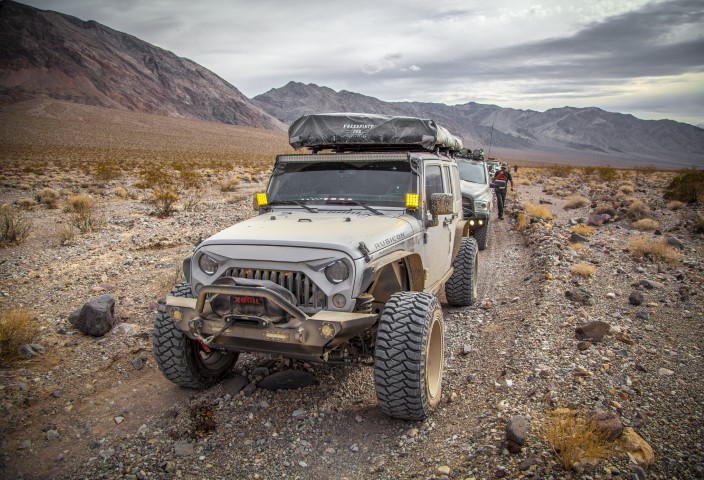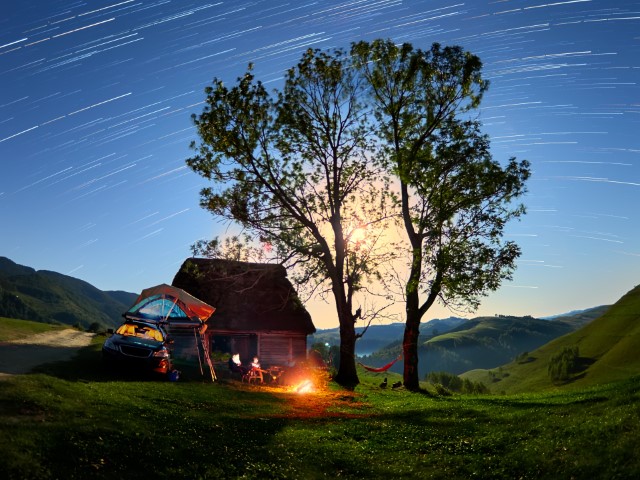 They say that life’s an adventure. So, why not get into one, right? There are many available options for an adventure that fits you, and overlanding might be what you’re looking for. Overlanding is an adventure trip to remote locations, and trends among several off-road communities. However, this adventure travel isn’t about the destination; it’s more of the journey of getting there.
They say that life’s an adventure. So, why not get into one, right? There are many available options for an adventure that fits you, and overlanding might be what you’re looking for. Overlanding is an adventure trip to remote locations, and trends among several off-road communities. However, this adventure travel isn’t about the destination; it’s more of the journey of getting there.
Overlanding has its inherent risks. Therefore, before embarking on one, you need to be informed of the needed safety measures to take. You can start watching videos, read books, or visit websites like Revelry Overland for some informative guides and helpful tips.
Another critical aspect of overlanding is the vehicle you’ll use for the adventure. This type of vehicle can be a hefty investment, so make sure it’s worth it. Don’t spend thousands of dollars on your first 4×4 (or two-wheeler) without securing the essentials found below.
Ready to buy your overlanding vehicle, but don’t know where to start? Here are some essentials you might need to begin with:
1. Your Overlanding Plan
While it’s true that the spirit of overlanding lies in adventure and self-reliance, this doesn’t mean that you can just buy any overlanding vehicle that you see in the market. With the abundance of overlanding vehicles, from bikes to full-size trucks, deciding on which one to choose might be difficult.
To come up with the perfect decision, you’ll need a concrete plan. Here are some questions whose answers you might want to consider:
-
-
- Are you going solo, as a couple, or as a family?
-
This question is crucial to determine which vehicle can accommodate you or your group. Some have found regular SUVs slapped with larger tires large enough for overlanding couples. However, if you’re a family beginning your off-road and overlanding journey, getting an overland van might be the best option for you.
-
-
- How long will you be on the road?
-
Will it be for a weekend? A month? Half a year? By having a clear plan of how long you’ll be traveling, you can think of which vehicle can fit your needs. Consider the availability of storage, cargo space, and other amenities outfitted or present in your vehicle. Plus, consider if it’s super comfortable on long road trips, even when out on those dirt roads.
Again, it might need emphasis that overlanding can take you from days to months. Knowing this means you’ll need a reliable and well-maintained off-road vehicle. It needs to be mechanically sound, too, so it can serve its purpose well.
-
-
- What kind of road are you going to encounter?
-
The kind of road you’ll encounter can give you an idea of how much traction your tires may need. It can also help assess how much power your vehicle should have. Knowing if you’re going against muddy roads, rocky terrains, or wet grounds can also help you look for vehicles with proven robustness and outstanding maneuverability.
The characteristics of what makes a great overlanding vehicle may vary. Generally speaking, however, vehicles that have four-wheel drive, undercarriage protection, off-road suspension, and highly rated torque perform so much better when expeditions involve uneven and muddy roads.
2. Your Existing Skills And Knowledge
During an overlanding journey, it’s likely that you’ll cross the wilderness, rugged terrains, and remote places. Thus, expect that many surprising incidents might happen. This means that you should be equipped with the necessary skills to go through these unplanned situations.
What skills do you need for overlanding trips? The answer is many. Medical skills, survival skills, navigational skills, mechanical skills, and even your driving skills would matter. But, more than identifying what current skills you have, it’s important for you to honestly evaluate how you fair in each type of skill, too. This is critical so you can determine the type of overlanding vehicle you can best use.
A two-wheeler might be a better option for you if you possess great mechanical skills for motorcycles. If it’s also not a bother to pack everything you need within the two-wheeler, then it might be the most fitting vehicle you need to make your trip memorable. Although trucks and SUVs are the top choices for overlanding journeys, motorcycles, custom-built rigs, and any other vehicle that’s made with off-road intent are also great options.
The level of your navigational skills is also helpful in choosing the correct vehicle. If you can stay sharp even when only using your longitudes, latitudes, and your maps, then going for a budget-friendly vehicle that doesn’t have the most advanced GPS or tracking system might be a great starter vehicle. 
3.Budget You’re Willing To Spend
For starters, know that overlanding can be costly. If you think that expenses end after having your vehicle, think again. There might be upgrades that your vehicle might need soon. These can include outfitting amenities, like portable toilets, storage, and camp kitchens.
There are other factors that make overlanding expensive. Costs can spike up, depending on the location for your destination, quality of gear, and communication equipment used. The length of the trip, supplies per person, repairs budget, and insurance are other things you need to look into as well.
You should also make some room in your budget for your vehicle’s shipping cost, just in case you’d have to ship your vehicle to your trip’s starting point, or if you come across an impassable area along your route.
Lastly, activities such as hiking, mountain biking, homesteading, hunting, and fishing can also catch your interest once the journey starts. These come with additional costs. Once you start computing these numbers, you might be surprised at how much they’ll cost you! The only good thing is, now, you have a good starting point before deciding to buy your vehicle.
Conclusion
If you’re planning to purchase an overlanding vehicle, you should consider a few options first before pulling the trigger and buying something that would suit your needs.
Make a plan, consider the kind of adventure you’re going to take, make sure the route you’re taking suits your driving and other skills, and make some wiggle room for your budget for incidental expenses. And, most of all, have fun!










